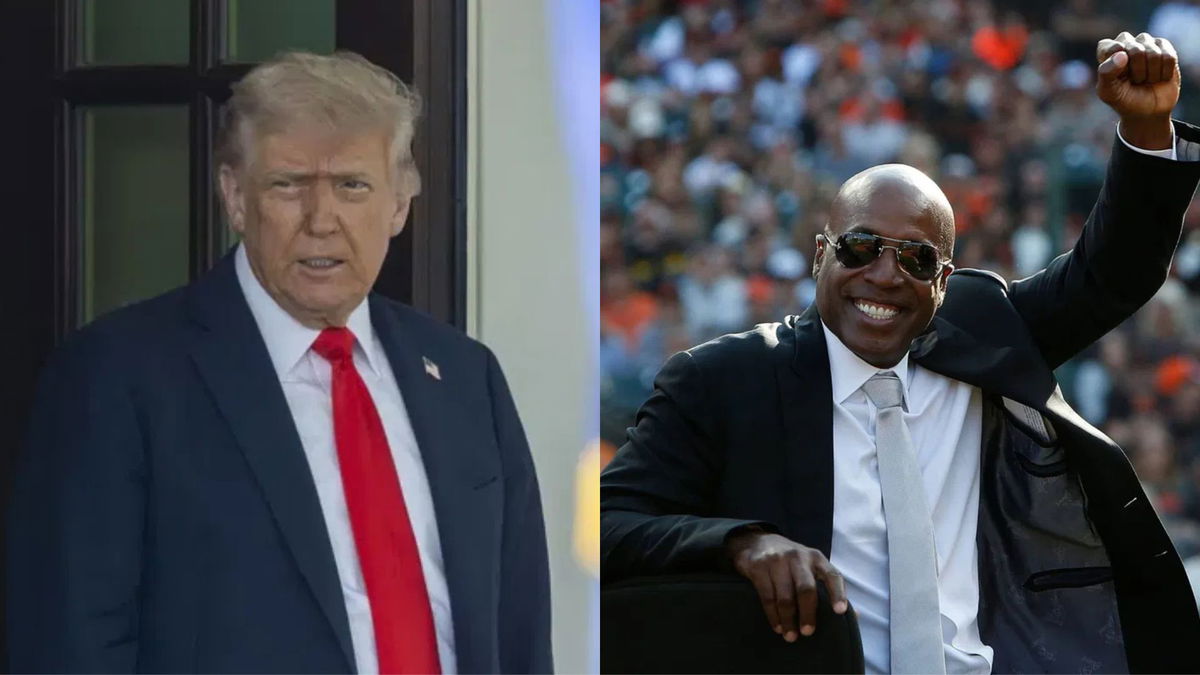
Imago
Source: Imago

Imago
Source: Imago
Baseball has never lacked for drama, but only in America can it take a presidential nudge to reopen wounds the sport has spent decades trying to stitch shut. Barry Bonds and Roger Clemens remain the game’s most polarizing talents, and now Donald Trump has entered the dugout of opinion, daring MLB to reconsider legends it once banished. Integrity, it seems, is negotiable when Cooperstown’s gates start rattling.
Watch What’s Trending Now!
We know there are many MLB legends who have not even seen the ‘H’ of the Hall of Fame. But things seem to be changing, as, after Pete Rose, President of the USA, Donald Trump is making a case for Roger Clemens to be inducted into the HoF. This means that many of the top stars who were blacklisted might be getting the shoutout they deserve.
The Athletic recently reported how Donald Trump is pushing the idea of Clemens in the HoF. According to their sources, “President Trump is convinced that Roger Clemens belongs in the Hall of Fame… Clemens’ immediate fate could be decided this winter” by the Contemporary Baseball Era Players ballot. The article noted other names who could appear on or around that ballot (reports have mentioned Barry Bonds, Don Mattingly, Fred McGriff, Dale Murphy, Rafael Palmeiro, and Curt Schilling, among others).
ADVERTISEMENT
Donald Trump’s sudden proclamation that Roger Clemens deserves Hall of Fame induction “He should be in the Baseball Hall of Fame, NOW!” added political fireworks. While his words carried presidential flair, the reality is Cooperstown still runs on committees and ballots. Clemens, despite winning seven Cy Young Awards, remains overshadowed by ties to performance-enhancing drugs. The result has been years of rejection despite achievements that should have guaranteed a first-ballot induction without hesitation.
If Trump’s comments somehow gain traction, the ripple effects could reshape Hall of Fame debates long considered closed. Clemens’ induction would challenge decades of moral posturing by MLB against steroid-linked players and their accomplishments. Once integrity questions become negotiable, the door swings wide for others once thought permanently excluded. That shift would force baseball to confront the uncomfortable tension between its clean-image narrative and undeniable on-field greatness.
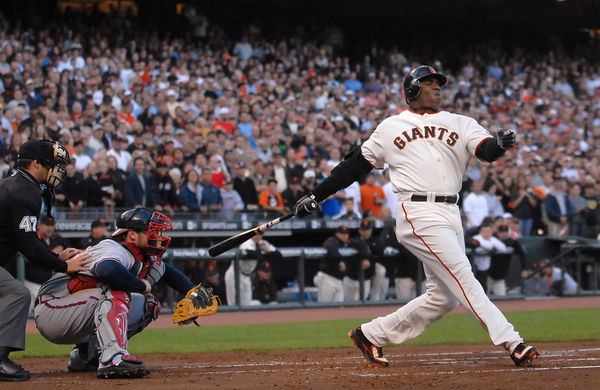
Imago
San Francisco Giants Barry Bonds takes a big swing on a strike thrown by Atlanta Braves pitcher John Smoltz in the first inning on Monday, July 23, 2007, at AT&T Park in San Francisco, California. Jose Carlos Fajardo/Contra Costa Times/MCT SAN FRANCISCO CA U.S.A EDITORIAL USE ONLY Copyright: x x2007xCONTRAxCOSTAxTIMESx 1046714 JOSExCARLOSxFAJARDOx krtphotoslive263157
Among those waiting impatiently on the doorstep is Barry Bonds, baseball’s all-time home run king and lightning rod. Like Clemens, Bonds fell short in both BBWAA voting and the Era Committee’s deliberations. Despite his unmatched dominance, suspicions of steroid use have cemented his status as Cooperstown’s most controversial omission. If Clemens breaks through, Bonds immediately becomes the next inevitable conversation demanding serious consideration from Hall voters.
ADVERTISEMENT
Barry Bonds’ statistical supremacy remains baseball’s loudest reminder that the Hall cannot erase history it doesn’t favorably endorse. His records continue to stand untouchable, forcing every generation to confront its contradictions about achievement and morality. Trump’s push for Clemens could unintentionally accelerate Bonds’ path, forcing MLB to acknowledge selective gatekeeping. And if Bonds enters Cooperstown, the entire foundation of baseball’s steroid-era judgment will forever be rewritten.
ADVERTISEMENT
Clemens and Bonds are no longer just names on ballots; they’re symbols testing baseball’s moral compass. Trump’s megaphone has ensured the debate won’t fade quietly, no matter how hard MLB clings to its “character clause.” If Cooperstown continues to guard its gates with selective outrage, it risks turning legends into martyrs and the Hall into a museum of half-truths. After all, if greatness is negotiable, maybe satire is the only plaque that fits.
Even if MLB doesn’t take action, Barry Bonds couldn’t care less
Some players chase Cooperstown like it’s the final out of their careers, but Barry Bonds was never wired that way. MLB can posture, committees can vote, and presidents can shout from podiums, yet the all-time home run king remains unmoved. Bonds has lived decades as the sport’s greatest contradiction, and indifference has become his sharpest weapon. After all, why beg for validation when history already screams your name?
ADVERTISEMENT
Barry Bonds remains baseball’s most polarizing figure, a record-breaking giant whose swing altered the sport forever. With 762 home runs and unmatched plate discipline, he became the standard by which every slugger is measured. Yet Cooperstown’s doors remain closed, MLB choosing whispers of suspicion over undeniable production and historic dominance. His exclusion isn’t just a debate—it’s the sport’s most glaring contradiction between numbers and narrative.
That contradiction weighs heavily given Bonds’ belief that he’s been intentionally blackballed from baseball’s inner sanctum. Though never suspended or convicted, his career is eternally shadowed by accusations that courts never proved. He reposted stories highlighting sportsmen blackballed by their leagues, a gesture echoing his own fate. Even at the Pirates Hall of Fame, he admitted, “I don’t have those hopes anymore.”
Top Stories
Toronto Loyalist Raises Alarm as Shocking Bo Bichette Update Puts Blue Jays’ 2026 Dreams on the Brink

Red Sox’s Alex Bregman Fallout Becomes Evident as Two MLB Rivals Ignite Fierce Bidding War, per Report

$275M Cardinals Star’s MLB Future All but Sealed as U.S. Sportscaster Asks $2.75B Team to Make Bold Move
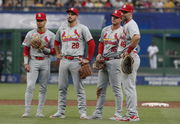
Mets Become Leading Contender For 30YO Ex-Phillies Star after David Stearns’ Mega Offseason Misses, Per Insider
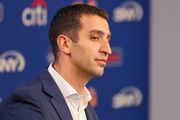
Kyle Tucker Throws Blue Jays Into Chaos as Ross Atkins Forced Into Harsh Job Cuts
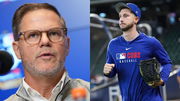
Still, Bonds insists he carries no bitterness, only a perspective that outgrows Cooperstown’s elusive validation. His words ring clear: “I don’t have to worry about those things anymore in my life.” Instead, he focuses simply on tomorrow, saying he hopes just “to breathe… make it to 61.” Bonds may never get his plaque, but his swing and story remain baseball’s most enduring reminder of paradox.
ADVERTISEMENT
The truth is, Barry Bonds doesn’t need MLB’s plaque to authenticate what every pitcher already knew. Cooperstown can clutch its morals like a church hymn, but the gospel was written by his bat. Bonds turned suspicion into a sideshow and history into his personal highlight reel, leaving the Hall looking smaller, not him. In the end, MLB may keep the gate locked, but Barry Bonds still owns the cathedral.
ADVERTISEMENT
ADVERTISEMENT
ADVERTISEMENT

